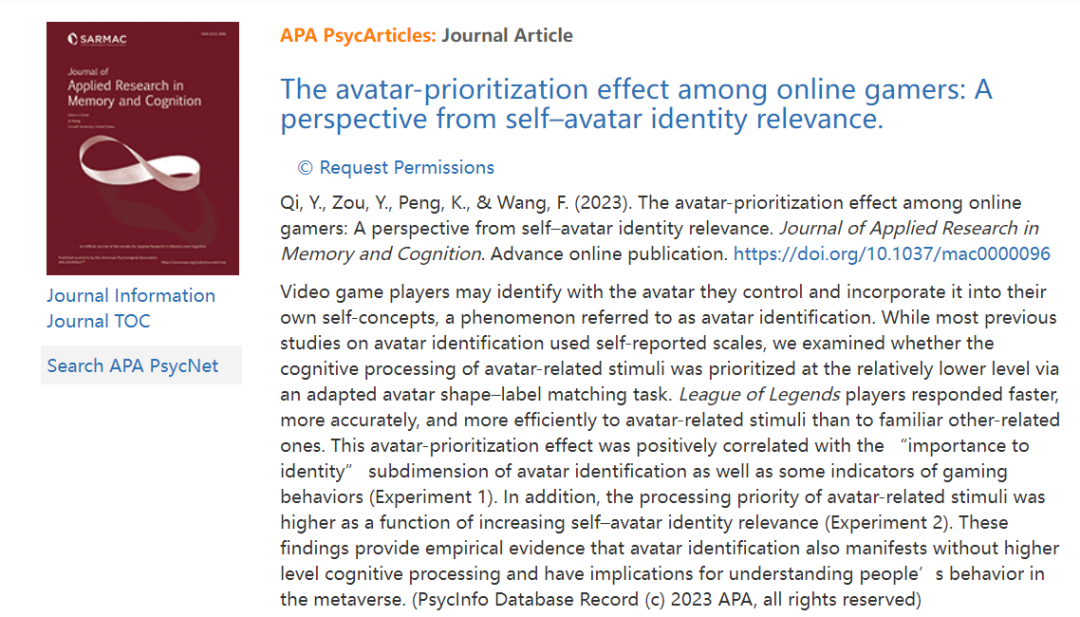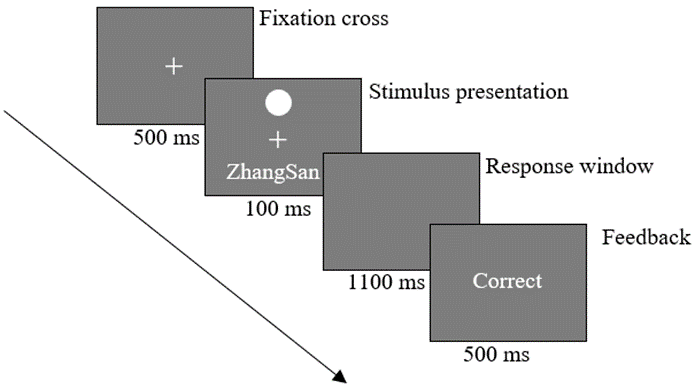Recently, Wang Fei's research group from the Department of Psychology at Tsinghua University published a paper titled "The Avatar-Prioritization Effect among Online Gamers: A Perspective from Self–Avatar Identity Relevance" in the international experimental psychology journal Journal of Applied Research in Memory and Cognition (IF = 4.600, JCR Q1). This study explores the cognitive processing advantages of gamers towards avatar-related information and the underlying psychological mechanisms. The first author of the paper is Qi Yuxuan, a 2019 doctoral student in our department, and the corresponding author is Associate Professor Wang Fei from our department.

In electronic games, avatars are digital representations of players. Do players view avatars merely as temporary characters they control, or do they integrate avatars into their self-concept? To answer this question, the research drew on literature from the field of self-cognition, such as the phenomenon that self-relevant information (like faces, names, etc.) receives enhanced processing in cognitive tasks. If individuals indeed incorporate avatars into their self-concept, then avatar-related information should also demonstrate cognitive processing advantages, termed the "avatar-prioritization effect."

Experimental Trial Process Diagram
Based on this hypothesis, the study employed a shape-label matching task paradigm in two experiments conducted with League of Legends players.

Experimenters Recruiting League of Legends Players in Internet Cafes
The results of Experiment 1 showed that compared to information related to familiar others, players demonstrated processing advantages for avatar-related information. The magnitude of this effect was significantly positively correlated with the "importance to identity" subdimension of avatar identification, as well as variables such as flow experience, hedonic feeling, game loyalty, and game addiction. Experiment 2 further demonstrated that self-avatar identity relevance can serve as a psychological mechanism influencing individuals' cognitive processing of avatar-related information. This study provides evidence that players incorporate avatars into their self-concept and offers insights for understanding people's behavior in virtual worlds.
This research was supported by the Shanghai Science and Technology Commission Research Project and the Fundamental Research Funds for the Central Universities.
Paper Link:
Qi, Y., Zou, Y., Peng, K., & Wang, F. (2023). The Avatar-Prioritization Effect among Online Gamers: A Perspective from Self–Avatar Identity Relevance. Journal of Applied Research in Memory and Cognition. Advance online publication. https://doi.org/10.1037/mac0000096
Faculty Profile


Wang Fei
Associate Professor, Doctoral Supervisor
Department of Psychology, School of Social Sciences
Tsinghua University
Research Interests:
Psychological and neural mechanisms of self-cognition
Neural mechanisms of cultural thinking styles
Biological foundations of personality
Applied social cognitive neuroscience

